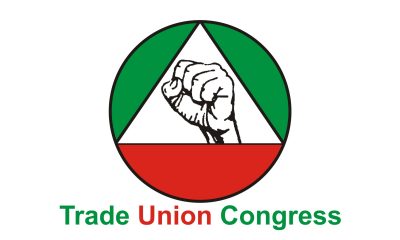Oil & Energy
Nigeria Subsidises Petrol Consumption For Other African Countries
The massive petrol subsidy currently being reported by the Nigerian National Petroleum Corporation (NNPC), may be a reflection of petrol consumption not only by Nigerians, but also those used by neighbouring African countries.
This development is being justified by the sudden appreciation in daily petrol consumption for Nigeria from 35 million litres to 60 million litres.
However, some oil marketers, maintained that the 60 million litres daily consumption of petrol being quoted was not possible for Nigeria’s current population and potential petrol users.
They described the figure as over bloated, saying the sudden rise to 60 million litres daily is questionable, and should be investigated.
This is just as regulatory agencies including the Petroleum Products Pricing Regulatory Agency (PPPRA), National Bureau of Statistics (NBS), the Petroleum Equalisation Fund (PEF), have opened investigations into the sudden surge in consumption levels.
Already, a total of N1.4trillion according to the federal government is being spent annually by NNPC as subsidy on premium motor spirit (PMS) also called petrol, even though there is no budgetary provision for subsidy in the 2018 budget, and has not been for some years now.
Although, it described the amount as under-recovery, the government said the national oil firm had been shouldering the huge financial burden, because it is the country’s supplier of last resort when it comes to the provision of petroleum products.
The Executive Secretary, Depot and Petroleum Products Marketers Association (DAPPMA), Femi Adewole said that owing to widespread concern over the 60 million litres, a study being coordinated by the Ministry of Petroleum Resources, to ascertain the true consumption of petrol by Nigerians, is ongoing.
Spokesperson for NNPC, Ndu Ughamadu, confirmed that large quantities of both imported and locally-refined petroleum products were being smuggled to neighbouring countries.
He said: “In fact, in Ghana, there is a special name and local market for these smuggled products particularly Premium Motor Spirit (petrol).
“A reason for the smuggling is the huge attractive and sumptuous price differential between what petrol is sold in the Nigerian open market vis-à-vis those of the neighbouring countries; the wider the gaps, the more the smuggling and price distortions.”
Also condemning the huge subsidy burden, an independent marketer and Managing Director, Petrocam Trading Nigeria Limited, Patrick Ilo, described the incidence as unwarranted.
Ilo said: The country is losing close to about N1.2 billion everyday subsidising fuel, and it is like a free gift to marketers. About seven nations around Nigeria are not subsidising petrol.
“The product is being taken outside Nigeria, and they are the ones benefitting. There are over 2,700 filling stations around the borders of Nigeria providing these leakages.”
This kind of money we use in subsidising the product should be used to build infrastructure and some other things in the country.”
A major marketer also told The Guardian in confidence that the 60 million litres far exceeds what Nigerian can consume per day.
By his estimation, 25 million litres daily could be “justifiable” against the 35 million previously peddled by government.
“This is a case of gross abuse on the side of the authorities saddled with the responsibility to bring in petrol into the country. It is unfortunate,” he lamented.
He maintained that a large chuck of the daily subsidy the NNPC claims to be paying on petrol was obviously subsidies on petrol consumed by neighbouring countries around Nigeria.
Oil & Energy
FG Woos IOCs On Energy Growth
The Federal Government has expressed optimism in attracting more investments by International Oil Companies (IOCs) into Nigeria to foster growth and sustainability in the energy sector.
This is as some IOCs, particularly Shell and TotalEnergies, had announced plans to divest some of their assets from the country.
Recall that Shell in January, 2024 had said it would sell the Shell Petroleum Development Company of Nigeria Limited (SPDC) to Renaissance.
According to the Minister of State for Petroleum Resources (Oil), Heineken Lokpobiri, increasing investments by IOCs as well as boosting crude production to enhancing Nigeria’s position as a leading player in the global energy market, are the key objectives of the Government.
Lokpobiri emphasized the Ministry’s willingness to collaborate with State Governments, particularly Bayelsa State, in advancing energy sector transformation efforts.
The Minister, who stressed the importance of cooperation in achieving shared goals said, “we are open to partnerships with Bayelsa State Government for mutual progress”.
In response to Governor Douye Diri’s appeal for Ministry intervention in restoring the Atala Oil Field belonging to Bayelsa State, the Minister assured prompt attention to the matter.
He said, “We will look into the issue promptly and ensure fairness and equity in addressing state concerns”.
Lokpobiri explained that the Bayelsa State Governor, Douyi Diri’s visit reaffirmed the commitment of both the Federal and State Government’s readiness to work together towards a sustainable, inclusive, and prosperous energy future for Nigeria.
While speaking, Governor Diri commended the Minister for his remarkable performance in revitalisng the nation’s energy sector.
Oil & Energy
Your Investment Is Safe, FG Tells Investors In Gas
The Federal Government has assured investors in the nation’s gas sector of the security and safety of their investments.
Minister of State for Petroleum Resources (Gas), Ekperikpe Ekpo, gave the assurance while hosting top officials of Shanghai Huayi Energy Chemical Company Group of China (HUAYI) and China Road and Bridge Corporation, who are strategic investors in Brass Methanol and Gas Hub Project in Bayelsa State.
The Minister in a statement stressed that Nigeria was open for investments and investors, insisting that present and prospective foreign investors have no need to entertain fear on the safety of their investment.
Describing the Brass project as one critical project of the President Bola Tinubu-led administration, Ekpo said.
“The Federal Government is committed to developing Nigeria’s gas reserves through projects such as the Brass Methanol project, which presents an opportunity for the diversification of Nigeria’s economy.
“It is for this and other reasons that the project has been accorded the significant concessions (or support) that it enjoys from the government.
“Let me, therefore, assure you of the strong commitment of our government to the security and safety of yours and other investments as we have continually done for similar Chinese investments in Nigeria through the years”, he added.
Ekpo further tasked investors and contractors working on the project to double their efforts, saying, “I want to see this project running for the good of Nigeria and its investors”.
Earlier in his speech, Leader of the Chinese delegation, Mr Zheng Bi Jun, said the visit to the country was to carry out feasibility studies for investments in methanol projects.
On his part, the Managing Director of Brass Fertiliser and Petrochemical Ltd, Mr Ben Okoye, expressed optimism in partnering with genuine investors on the project.
Oil & Energy
Oil Prices Record Second Monthly Gain
Crude oil prices recently logged their second monthly gain in a row as OPEC+ extended their supply curb deal until the end of Q2 2024.
The gains have been considerable, with WTI adding about $7 per barrel over the month of February.
Yet a lot of analysts remain bearish about the commodity’s prospects. In fact, they believe that there is enough oil supply globally to keep Brent around $81 this year and WTI at some $76.50, according to a Reuters poll.
Yet, like last year in U.S. shale showed, there is always the possibility of a major surprise.
According to the respondents in that poll, what’s keeping prices tame is, first, the fact that the Red Sea crisis has not yet affected oil shipments in the region, thanks to alternative routes.
The second reason cited by the analysts is OPEC+ spare capacity, which has increased, thanks to the cuts.
“Spare capacity has reached a multi-year high, which will keep overall market sentiment under pressure over the coming months”, senior analyst, Florian Grunberger, told Reuters.
The perception of ample spare capacity is definitely one factor keeping traders and analysts bearish as they assume this capacity would be put into operation as soon as the market needs it. This may well be an incorrect assumption.
Saudi Arabia and OPEC have given multiple signs that they would only release more production if prices are to their liking, and if cuts are getting extended, then current prices are not to OPEC’s liking yet.
There is more, too. The Saudis, which are cutting the most and have the greatest spare capacity at around 3 million barrels daily right now, are acutely aware that the moment they release additional supply, prices will plunge.
Therefore, the chance of Saudi cuts being reversed anytime soon is pretty slim.
Then there is the U.S. oil production factor. Last year, analysts expected modest output additions from the shale patch because the rig count remained consistently lower than what it was during the strongest shale boom years.
That assumption proved wrong as drillers made substantial gains in well productivity that pushed total production to yet another record.
Perhaps a bit oddly, analysts are once again making a bold assumption for this year: that the productivity gains will continue at the same rate this year as well.
The Energy Information Administration disagrees. In its latest Short-Term Energy Outlook, the authority estimated that U.S. oil output had reached a record high of 13.3 million barrels daily that in January fell to 12.6 million bpd due to harsh winter weather.
For the rest of the year, however, the EIA has forecast a production level remaining around the December record, which will only be broken in February 2025.
Oil demand, meanwhile, will be growing. Wood Mackenzie recently predicted 2024 demand growth at 1.9 million barrels daily.
OPEC sees this year’s demand growth at 2.25 million barrels daily. The IEA is, as usual, the most modest in its expectations, seeing 2024 demand for oil grow by 1.2 million bpd.
With OPEC+ keeping a lid on production and U.S. production remaining largely flat on 2023, if the EIA is correct, a tightening of the supply situation is only a matter of time. Indeed, some are predicting that already.
Natural resource-focused investors Goehring and Rozencwajg recently released their latest market outlook, in which they warned that the oil market may already be in a structural deficit, to manifest later this year.
They also noted a change in the methodology that the EIA uses to estimate oil production, which may well have led to a serious overestimation of production growth.
The discrepancy between actual and reported production, Goehring and Rozencwajg said, could be so significant that the EIA may be estimating growth where there’s a production decline.
So, on the one hand, some pretty important assumptions are being made about demand, namely, that it will grow more slowly this year than it did last year.
This assumption is based on another one, by the way, and this is the assumption that EV sales will rise as strongly as they did last year, when they failed to make a dent in oil demand growth, and kill some oil demand.
On the other hand, there is the assumption that U.S. drillers will keep drilling like they did last year. What would motivate such a development is unclear, besides the expectation that Europe will take in even more U.S. crude this year than it already is.
This is a much safer assumption than the one about demand, by the way. And yet, there are indications from the U.S. oil industry that there will be no pumping at will this year. There will be more production discipline.
Predicting oil prices accurately, even over the shortest of periods, is as safe as flipping a coin. With the number of variables at play at any moment, accurate predictions are usually little more than a fluke, especially when perceptions play such an outsized role in price movements.
One thing is for sure, though. There may be surprises this year in oil.
lrina Slav
Slav writes for Oilprice.com.
-

 News3 days ago
News3 days agoFubara Inaugurates Road Project To Celebrate Jackrich On Birthday
-

 Featured3 days ago
Featured3 days agoNigeria, S/Arabia, Deepen Ties On Solid Mineral Exploration
-
Niger Delta3 days ago
RSBOPP Moves To Review Procurement Processes
-

 News3 days ago
News3 days agoTUC Rejects VAT Hike, Urges Pro-people Tax Reforms
-

 Business3 days ago
Business3 days agoCBN Predicts 4.17% GDP Growth In 2025
-
Rivers3 days ago
100 Days: Omuma Council Boss Lists Achievements
-

 Featured3 days ago
Featured3 days agoTinubu Pledges Peace, Justice, Development in Ogoniland….Fubara Lauds President on Peace Talks
-

 Featured3 days ago
Featured3 days agoFG, States, Local Govts Share N1.42trn In January

